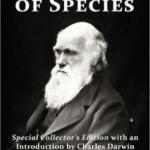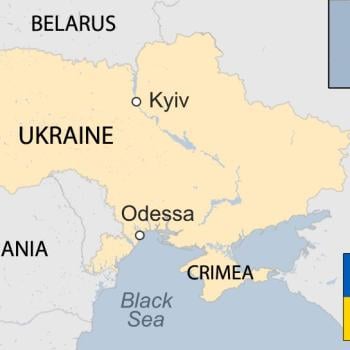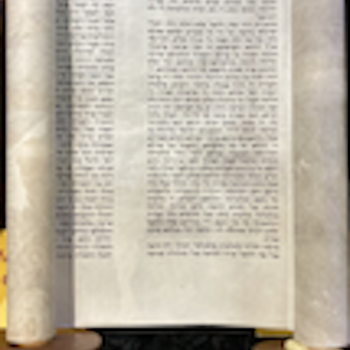 I wrote my book, Moses Predicted COVID-19, hurriedly during the early months of COVID-19, thus in the spring of 2020. I explain in the preface that I did so because of the pandemic and that I was limited in my research due to libraries being closed from the nation’s shutdown.
I wrote my book, Moses Predicted COVID-19, hurriedly during the early months of COVID-19, thus in the spring of 2020. I explain in the preface that I did so because of the pandemic and that I was limited in my research due to libraries being closed from the nation’s shutdown.
The thesis of my book is that there is a mysterious connection between the past nine pandemics–from the Spanish Flu of 1918 to the present–and Moses’ food laws about eating meat in Leviticus 11 and Deuteronomy 14. All of those pandemics were caused by a coronavirus transmitted from an animal to a human, called zoonosis. And all four of types of animals that are believed to have caused those nine pandemics are declared as “unclean” in Moses’ food laws and therefore forbidden to be eaten.
Bats have been the main culprit. They are believed to have caused four of those nine pandemics if bats caused COVID-19, as generally believed. Now, I don’t therefore claim that all people should eat kosher, as orthodox Jews do in observance of Torah. But I do conclude in the book that the whole world should recognize this connection and thus give wild animals that Moses deems “unclean” their space. Human civilization has increasingly been encroaching on their habitat and thereby causing some of these deadly, zoonosis diseases.
But for Christians, especially Bible scholars, there is especially one biblical text that many would cite in opposing the thesis of my book. Therefore, I have a chapter about it in the book. It is about an altercation that Jesus had with religious authorities in which they blamed his disciples for eating food with unwashed hands. They cited their “tradition of the elders.” It was that any Jew who eats food with unwashed hands has defiled that food which then enters their stomachs.
This pericope is recorded in Matthew 15.1-20 and Mark 7.1-23. Almost all English Bibles translate Mark 7.19b, “Thus he [Jesus] declared all foods clean” (NRSV). And in the NRSV and some other versions, these words are placed in parenthesis, signifying it is an explanatory remark by the author of that gospel. Thus, this rendering means very clearly, as scholars acknowledge, that in this pericope Jesus abolished Moses’ food laws. I strongly opposed this in my book by providing several reasons.
First, Moses’ food laws regard only the eating of meat, whereas these religious authorities were talking about eating any food, not just certain meats, with unwashed hands. So, it is a changing of the subject matter to say that Jesus abolished Moses’ food laws about eating meat when these religious authorities were not talking about that at all but about how you eat, and eat all food, with washed or unwashed hands. Thus, the above rendering in Mark 7.19b is not according to the context of the discussion.
Second, I claim in my book that translators err both in how they translate Mark 7.19b and placing it in parenthesis. I say it was part of Jesus’ saying, and those words in the Greek text–panta ta bromata katharizon–do not mean Jesus was abolishing Moses’ food laws. A comparison of the Matthew pericope supports this.
Third, my main biblical support is Jesus’ important saying at the beginning of his public ministry. In his so-called Sermon on Mount he said, “Do not think that I have come to abolish the law [of Moses] or the prophets. I have come not to abolish but to fulfill” (Matt. 5.17). Thus, to say that in Mark 7.19b Jesus abolished Moses food laws contradicts what Jesus said earlier in his Sermon on the Mount.
Fourth, Jesus certainly did not overturn Moses’ food laws by what he said regarding eating with unwashed hands because, if he did and those religious authorities recognized that, it would have been prime evidence to cite at his hearing/trial before the Sanhedrin when they tried to find anything Jesus had taught that would have been contrary to the Law of Moses in order to accuse him blasphemy and thus call for the death penalty, which they did but for an entirely different reason.
So, because I was not able to research many commentaries of the Gospel of Mark when I wrote my book, as I ordinarily would have done, last year I went to Phoenix Seminary library and did so. And I found some interesting remarks. So many commentaries on Mark conclude what I said in the book, that many such Christian scholars say in them at Mark 7.19b that Jesus abolished Moses’ food laws. They include distinguished scholars such as R. T. France, C. E. B. Cranfield, Robert A. Guelich, Joel Marcus, Francis J. Moloney. Robert Gundry, in his commentary on Mark, is typical by saying of Mark 7.19b, “the following editorial phrase” represents “an abrogation of all food laws.”
Matthew Thiessen is an authority on the so-called “historical Jesus” debate. His book, Jesus and the Forces of Death: The Gospels’ Portrayal of Ritual Impurity within First-Century Judaism, was published in July, 2020, right after my book was published. In it, I think he interprets this pericope in Mark 7.1-23 very well. Moreover, his treatment of it is far more thorough and therefore thoughtful in a book about ritual impurity, which is what Jesus was being questioned about, than any commentary on a Bible book would be.
Thiessen asks (p.189), “How likely is it that Mark would stress obeying God’s commandments in a story in which Jesus rejects God’s commandments as they pertain to the consumption of impure animals?”
Thiessen then asserts (p. 191), “Mark 7 does not necessarily intend to depict the Pharisees as claiming that Jesus and his disciples have abandoned the law of Moses.”
Thiessen explains (p. 192), “The entire context of the clause of Mark 7:19 (‘purifying all foods’) situates this statement within a debate about whether one must ritually wash one’s hands prior to eating. That is to say, the story simply does not intend to deal with the question of whether one should eat pork or shellfish.”
Thiessen continues (p. 194), “Consequently, any reading of this story that depicts Jesus as rejecting God’s commandment to Israel [through Moses] to avoid eating unclean animals results in a Jesus who is irrational at best, and deeply hypocritical at worst. Is Mark so bumbling a narrator that he fails to notice this result?”
Thissen concludes (p. 195), “Nothing suggests that the Gospel writers intended to portray Jesus rejecting the Jewish dietary laws” as given by Moses (p. 195).
[See also my post, “Jesus Didn’t Abolish the Mosaic Food Laws.]













